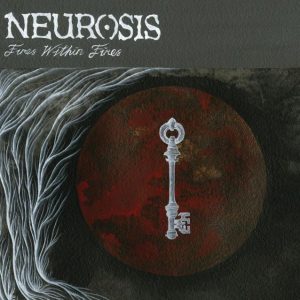NEUROSIS (BOOKING)


It is said that great art has the power to take us outside of ourselves and bring us closer to ourselves simultaneously. Few bands have accomplished this rare feat on a more profound and consistent basis than Neurosis. For nearly three decades, their music has touched the hearts and minds of young men and women seeking contact with something beyond the physical world, something intangible, something that expresses the inner tumult of the human condition in a way that transcends time and space. Something that not only provokes questions but maybe even hints at answers.
In 1996, I was one of those young men. I was 20 years old when I heard Through Silver In Blood, and I could never listen to music the same way again. The album was—and is—so dense, so turbulent, so different than anything I had heard before. It was—and is—like its own weather system. It didn’t just challenge me to think differently; it forced me to. It opened doors that lay beyond the confines of my own narrow experience. Best of all—to an aspiring “writer” at least—the band’s lyrics seemed to be saying something. Not about politics or religion or society or even interpersonal relationships, but about the life of the mind. And the words could be applied to modern life as readily as life a thousand years ago—or three thousand years ago, when our gods were our own and almost everyone still had to fight for their daily bread.
With the passage of time and the accumulation of experience, Neurosis’ work has only become more engaging, more penetrating, more visceral and decimating. Similarly, the band has only become more cognizant of their purpose.
The music on Honor Found In Decay is both torturous and transcendent. It is the ongoing exposition of a vast internal dialogue that seems to carry the weight of eons. With the right kind of ears and eyes, it can seem like the trials and tribulations of mankind are being channeled through five individuals: Steve Von Till, Scott Kelly, Noah Landis, Jason Roeder and Dave Edwardson. And yet? They will be the first ones to tell you that they are just regular people trying to make sense of the world around them. Aided by Josh Graham, their resident visual guru, they transmit their interpretations through multiple sensory planes. The degree to which Neurosis allows them to step out of their everyday lives is the distance between one and zero, the distance between thinking and doing, the distance between this minute and the one that may or may not follow. Which is to say: Neurosis takes them outside of themselves and brings them closer to themselves. Simultaneously
— J. Bennett, July 31, 2012







